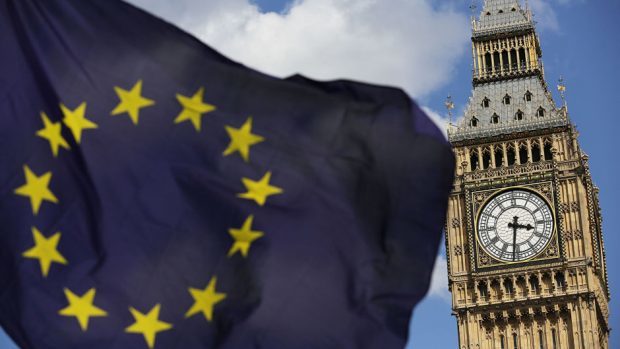The UK Government has seen off a backbench rebellion by promising MPs a vote on the final Brexit deal before it goes before the European Parliament.
Minister David Jones said yesterday the agreement would need to be approved by both the Commons and the Lords.
In a surprise announcement from the Despatch Box, the Conservative frontbencher revealed the vote would cover both “the withdrawal agreement and our future relationship with the EU”.
He added: “I can confirm that the government will bring forward a motion on the final agreement to be approved by both Houses of Parliament before it is concluded.
“We expect and intend that this will happen before the European Parliament debates and votes on the final agreement.”
Theresa May had previously only offered a parliamentary vote before the deal came into effect.
The concession emerged amid government fears some Tories would join forces with opposition MPs on the issue and try to amend the Article 50 Bill to that effect.
It is currently making its way through parliament and – if successful – will allow the prime minister to trigger formal withdrawal negotiations with the EU.
Shadow Brexit secretary Sir Keir Starmer hailed the step a “significant victory” after “months of concerted pressure” from Labour.
But party backbenchers were quick off their seats in the chamber to press for more detail and question the worth of a take-it-or-leave-it deal.
Jeremy Corbyn is facing a fresh revolt after ordering them to back the EU (Notification of Withdrawal) Bill in its final Commons stage today.
Former shadow home secretary Yvette Cooper asked what would happen if the UK Government did not secure an agreement.
Picking up on this, fellow Labour MP Chuka Umunna said: “For this to be a meaningful concession what the house wants is the opportunity to send the government back to our European partners if one (a deal) is not reached.”
Mr Jones, who faced similar questions from his own backbenchers, rejected this suggestion, adding: “Frankly, I can’t think of a greater signal of weakness than for this house to send the government back to the EU.”
He also said it would be “very hard to see” what meaningful vote could be had in the event negotiations collapse, a scenario he dismissed as “unlikely”.
And he insisted in those circumstances, the UK would indeed fall back on World Trade Organisation arrangements, a result widely considered to be extremely undesirable.
On the issue of what happens if parliament rejects the agreement, Mr Jones indicated EU politicians would not go onto vote on it.
Britain would still leave the bloc, he added, in line with Mrs May’s previous statements about her willingness to walk away if necessary.
Despite the government’s commitment, MPs forced a vote on an amendment -proposed by Labour MPs – to ensure parliament must approve any new deal or treaty in advance of final agreement with the European Commission, European Parliament or European Council.
Seven Tories – including former chancellor Ken Clarke – rebelled, but in the end the attempt was defeated by 326 votes to 293.
